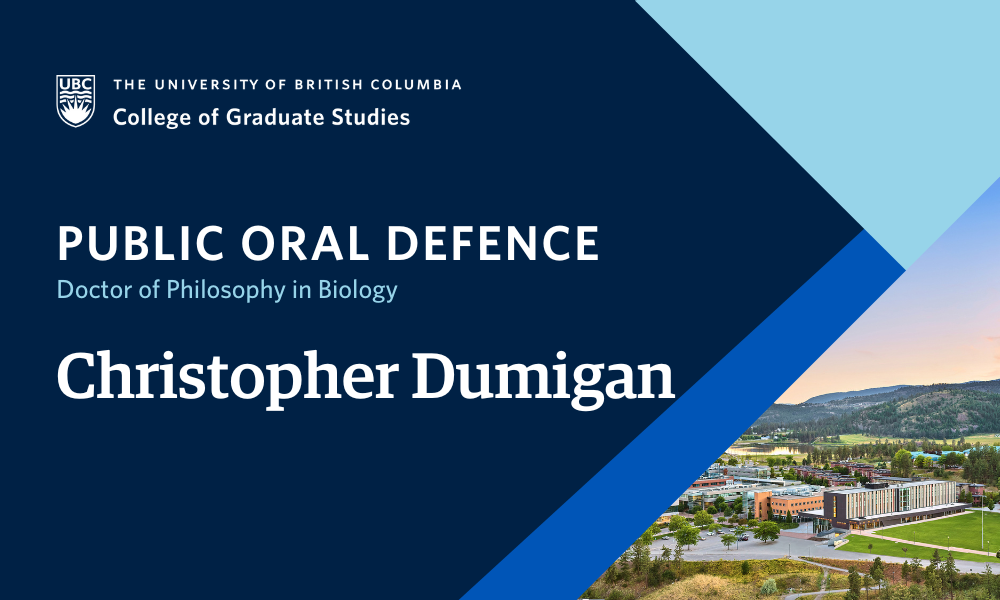
- This event has passed.
Dissertation Defence: Exploring the Cannabis Microbiome to Develop Safe and Sustainable Bio-Fungicides
January 8, 2024 at 12:00 pm - 4:00 pm

Christopher Dumigan, supervised by Dr. Michael Deyholos, will defend their dissertation titled “Exploring the Cannabis Microbiome to Develop Safe and Sustainable Bio-Fungicides” in partial fulfillment of the requirements for the degree of Doctor of Philosophy in Biology.
An abstract for Christopher Dumigan’s dissertation is included below.
Examinations are open to all members of the campus community as well as the general public. Registration is not required for in person defences.
ABSTRACT
Cannabis plants are hosts to a variety of fungal pathogens that have limited tools for control. Studying the microbiome of other crops shows that microorganisms can play an integral role in plant health by antagonizing pathogens, promoting plant vigor, and creating a functioning community or a “healthy” microbiome. Furthermore, plant-associated microorganisms can be passed down plant generations to germinating seedlings by their mother plant and vectored by seed. These can be both pathogenic and beneficial to their host plant. This thesis investigates the microbiome of Cannabis plants and the activities that both beneficial and pathogenic microorganisms have on this crop. Investigating 15 genotypes of Cannabis grown to seed across western Canada showed both hemp and marijuana inherit a closely related group of bioactive and anti-fungal endophytic bacilli. 13 of these isolates were able to antagonize known fungal pathogens of Cannabis that were also seed-borne, suggesting co-evolution and potential symbiosis between Cannabis and this class of bacteria. Mature Cannabis plants are infected by a growing number of fungal diseases. Documented here is the first report of Berkeleyomyces rouxiae infecting drug-type Cannabis causing black root-rot. This fungal pathogen was isolated from an aeroponics facility in Cranbrook BC and was not identified due to a lack of genomic resources on this fungal species. Here the first whole genome sequence is provided using hybrid genome sequencing and assembly. Finally, this thesis investigates the relative contributions of both seed and soil bacteria in shaping the endosphere communities in germinating Cannabis seedlings. A multifactorial metagenomic experiment was performed using three genotypes of Cannabis with two soil types, both of which were treated and untreated with autoclave sterilization. Cannabis genotype, soil type, and soil sterilization all play a role in structuring the endophyte communities of germinating Cannabis seedlings. This suggests inoculum from both seed and soil shape the microbiome of germinating Cannabis seedlings. There was however a shared element of the microbiome conserved across genotypes, soil types, and soil sterilization, indicating seed-borne endophytes are maintained across these conditions. Soil, however, had a dramatic and significant role in shaping the diversity and abundance of bacteria in this niche.